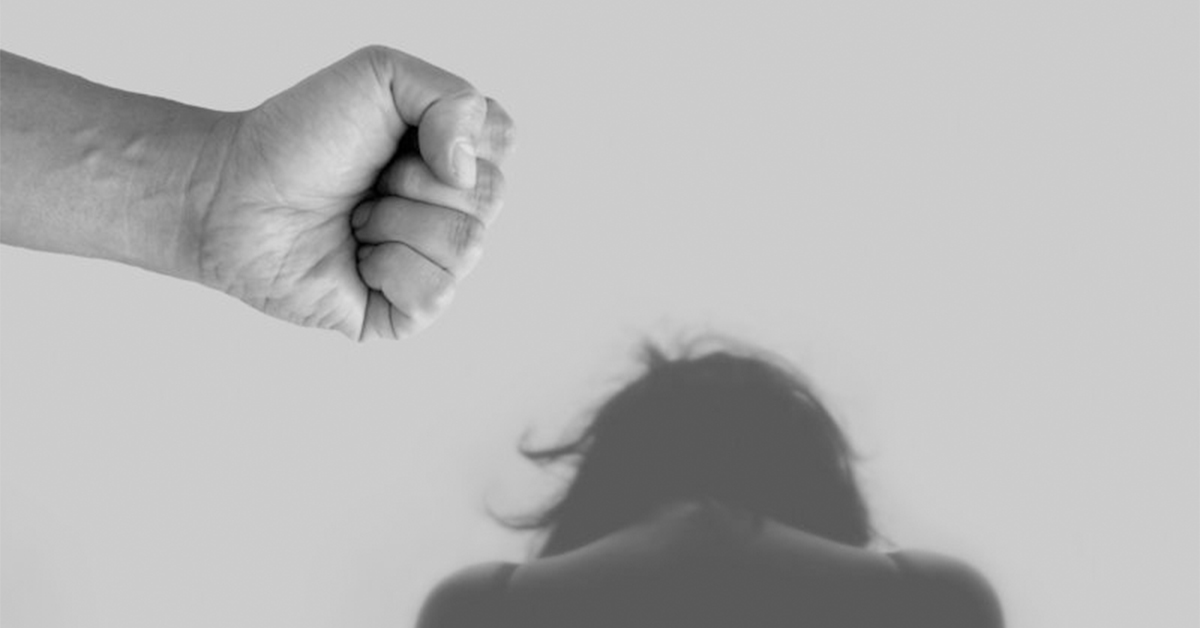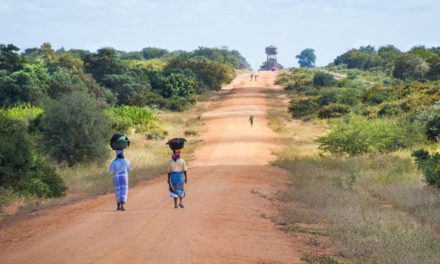
Locked Down With The Aggressor

For people who are experiencing domestic violence, mandatory lockdowns to curb the spread of COVID-19 (the disease caused by the new coronavirus) have trapped them in their homes with their abusers, isolated from the people and the resources that could help them.
The very technique being used to protect people from the virus can perversely impact victims of domestic violence. While everyone absolutely supports the need to follow these measures of social distancing and isolation, there is a need to recognize that it also affords an opportunity for abusers to unleash more violence.
Domestic violence is rooted in power and control. Stress makes abusers even more volatile, while heightened privacy gives them a feeling of “security” to unleash their aggression on a weaker link.
There has been a spike in domestic violence during the coronavirus pandemic. In recent months, populations worldwide have been directed to “stay home” to prevent the virus’s spread. On the other hand, cases of domestic violence have surged.
Right now, many people are feeling a lack of control over their lives and an individual who cannot manage that will take it out on their victim. People who were already in an abusive situation will likely find themselves facing more extreme violence, and can no longer escape by going to work or seeing friends.
This should come as no surprise especially for the predominantly victimized female gender. Right now they are confined to isolated homes with abusive partners whose coercive and physically violent tendencies are enabled and further inflamed by economic stressors. Supportive community ties are severed, while emergency services, shelter systems, and social services are overwhelmed and underfunded.
The pre-pandemic prevalence of domestic violence is intolerable. For 4 days, Juliet M., a 16-year-old Kenyan, was held captive by a man and sexually assaulted. She was rescued by neighbors and is currently receiving care in a safe house in Nairobi. The attacker reportedly said he kidnapped her because he needed female company to get through the government-imposed COVID-19 lockdown.
The Kenya government has adopted strict measures to counter the spread of the COVID-19 virus. But these measures, as necessary as they are, are having particular impact on women and girls, including elevating the risk of gender-based violence.
Last week, the National Council on Administration of Justice reported “a significant spike in sexual offences in many parts of the country in the past two weeks.” They expressed that “in some cases, the perpetrators are close relatives, guardians and/or persons living with the victims.” The report pledged that “the courts will consider giving directions on early hearing dates in such cases.”
Violence is a daily reality for women and girls across Kenya. According to government data, 45 percent of women and girls aged 15 to 49 have experienced physical violence and 14 percent have experienced sexual violence.
The current crisis also makes it more difficult for victims to seek help. This is contributed by the fact that medical facilities around the world scramble to respond to the coronavirus, health systems are becoming overloaded, making it more difficult for victims to get access to medical care or therapists. For many women, even the fear of contracting the coronavirus is stopping them from seeking out medical care after experiencing physical abuse.
Many victims also feel that they can no longer seek refuge at their parents’ home, for fear that they could expose their elderly parents to the virus. For some, travel restrictions may limit their ability to stay with loved ones. Women’s shelters may also be overcrowded during this time or may close their doors if the risk of infection is deemed too high.
The coronavirus crisis, which is expected to push the world economy into a recession, may also ultimately make it more difficult for victims to leave abusive relationships. Departing from an abusive partner often involves secretly saving money, which will be more difficult if victims begin to lose their jobs.
Many social services for victims of domestic violence will also suffer budget cuts under a recession philanthropic efforts to be really impacted as It’ll be hard to fundraise
Domestic violence advocates say that victims who are not yet in quarantine status should seek immediate help. Unfortunately, most victims of abuse lack anyone to stand with them during such difficult periods, or worse still they don’t know where to begin seeking for help. They not only fail to get justice, but they also lack moral, financial and emotional support to help them in their troubles. Consequently, this means they are fated to anguish with this torment for the rest of their lives.
Many cases are not reported to authorities and few women get justice or receive medical care. Keep in mind that before the pandemic hit, one in five women reported experiencing sexual or physical violence by an intimate partner in the last year. That must also factor that 50 percent of domestic abuse cases go unreported.
As with so many devastating consequences of the coronavirus pandemic, this moment has revealed and exacerbated underlying, pre-existing conditions of structural violence. In abusive households, experts see a potentially devastating combination of emotions brewing. Women fear the aggressor inside the home and the virus outside.
There needs to be longer-term responses offering social and economic infrastructure services, so that women and children are not dependent on the patriarchal household structure for survival. Also, safer spaces of cohabitation and community must be recognized and supported.
There also ought to be well-funded and robust support services for all domestic violence survivors. This includes psychological care and economic resources. The conditions of gender-based and sexual violence must be disrupted.
The, U.N. Secretary-General António Guterres recently delivered a public statement, calling on governments to “put women’s safety first as they respond to the pandemic.” His message was accompanied by a set of recommendations, including that governments “increase investment in online services and civil society organizations,” “declare shelters as essential services,” and continue to prosecute abusers and hold in prisons individuals convicted of violence against women.
Tackling this scourge will be no easy task; it requires no less than critiquing the nuclear household and the traditional family form. Patriarchal violence is too common and the current situation only acts as a fuel to infringe the already aggressed persons towards the edge of being completely torn physically, mentally and emotionally.





















Recent Comments